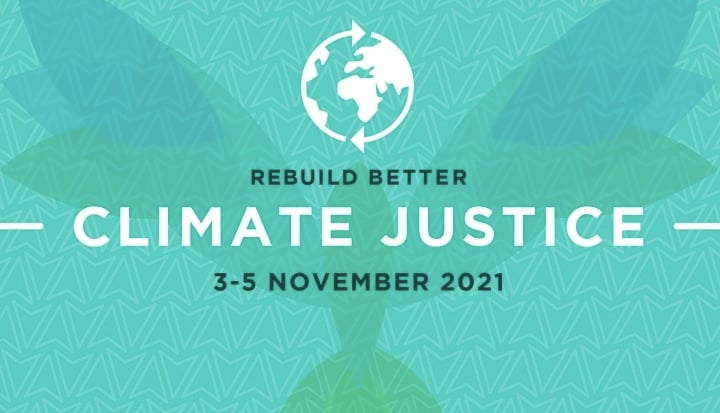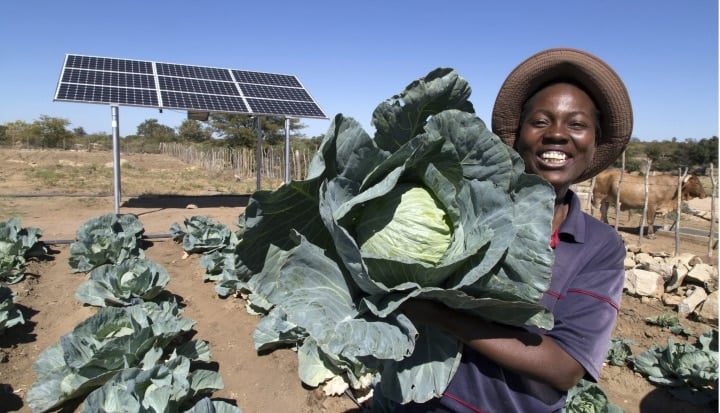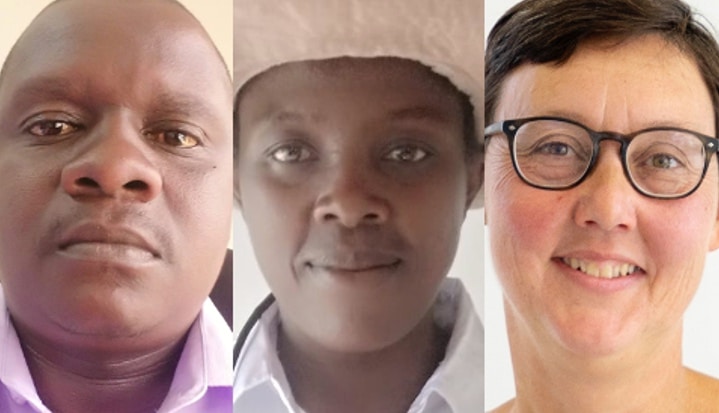Accelerating climate justice
Maria Claudia, our Business Development Officer in the Peru office took part in the Climate Justice series event at COP 26 as a panellist with others from Facebook, HBL Habib Bank and BioMec where they discussed and shared questions with young innovators at the forefront of creating our green inclusive future. Overall, outcomes from COP 26 were nowhere near good enough and we will be redoubling our efforts with partners, both to support those on the frontline of the climate emergency and build on some positive momentum in terms of work on the systemic changes required. Read the article here.

Harnessing the power of the private sector for transformative change
We will need substantive engagement and change from the private sector to deal with the climate emergency and meet the Sustainable Development Goals. I love this podcast with the people behind one of our longest standing partnerships, which emerged from conversations that started almost a decade ago. Chris Anderson at Practical Action and David Nash at the Z Zurich Foundation – the private foundation, funded by the Zurich Insurance Group – reveal practical tips on how to make partnerships work and sharing ideas on deepening impact and leading edge thinking on emerging trends which will deeply affect the ability to end poverty. Listen here.
Now the Zurich Flood Resilience Alliance is improving the resilience of over 700,000 people and is having substantial impact on the way flood risk is managed. We have recently expanded work into West Africa and are broadening the focus to a wider range of climate risks. Future work could support a step change in the way in the management of climate-related disasters. You can find out more about our work here.

Changing our food systems
Agriculture is not working for people or the planet. 78% of the world’s poorest people remain reliant on agriculture, 33% of the world’s soils are already degraded and agriculture contributes to about a quarter of global climate. We will be working in multiple ways to support and scale the move to regenerative food systems, including continuing our partnership with the IKEA Foundation described in the article below, which aims to demonstrate how a regenerative approach to agriculture can revitalise rural economies particularly for young people and build the business case for regenerative agriculture that scale these approaches in the future.
Written by Chris Henderson, our Head of Agriculture at Practical Action, this article goes into more detail about TREYL, an ongoing project with the Ikea Foundation that is helping rural people in Kenya earn a decent income from farming. You can also find out more about the TREYL project here.

More and more companies are interested in being part of the move to a regenerative future but struggle to know how to start or make the changes in their supply chains. We will be building on the Regenerative Agriculture: Growing Pains? series of webinars we hosted in partnership with IDH – The Sustainable Trade Initiative – in September 2020, where we explored how regenerative agriculture can work for the private sector AND smallholder farmers, how companies in the food system can put regenerative agriculture at the centre of what they do and how actors can work together and finance regenerative agriculture at scale. This article was written by our Agriculture Lead for Practical Action Consulting, John Chettleborough (more details about our consulting arm can be found here).

And finally, I was really pleased to be part of the podcast with Evaline Akoth, a farmer in Kisumu County, Kenya, Katie Hyson from Business Fights Poverty and Oliver Furechi, a project manager for TREYL (Transforming Rural Economies And Youth Livelihoods) where we heard directly from Evaline about the realities of farming in an era of climate change and what changes make a difference and discussed a mixture of why innovations in finance and payments for conservation are needed and how we can help bridge the gaps between bigger businesses and small holder farmers. Listen to the Podcast here.

Lots to do, but so much good progress to build on and scale.









